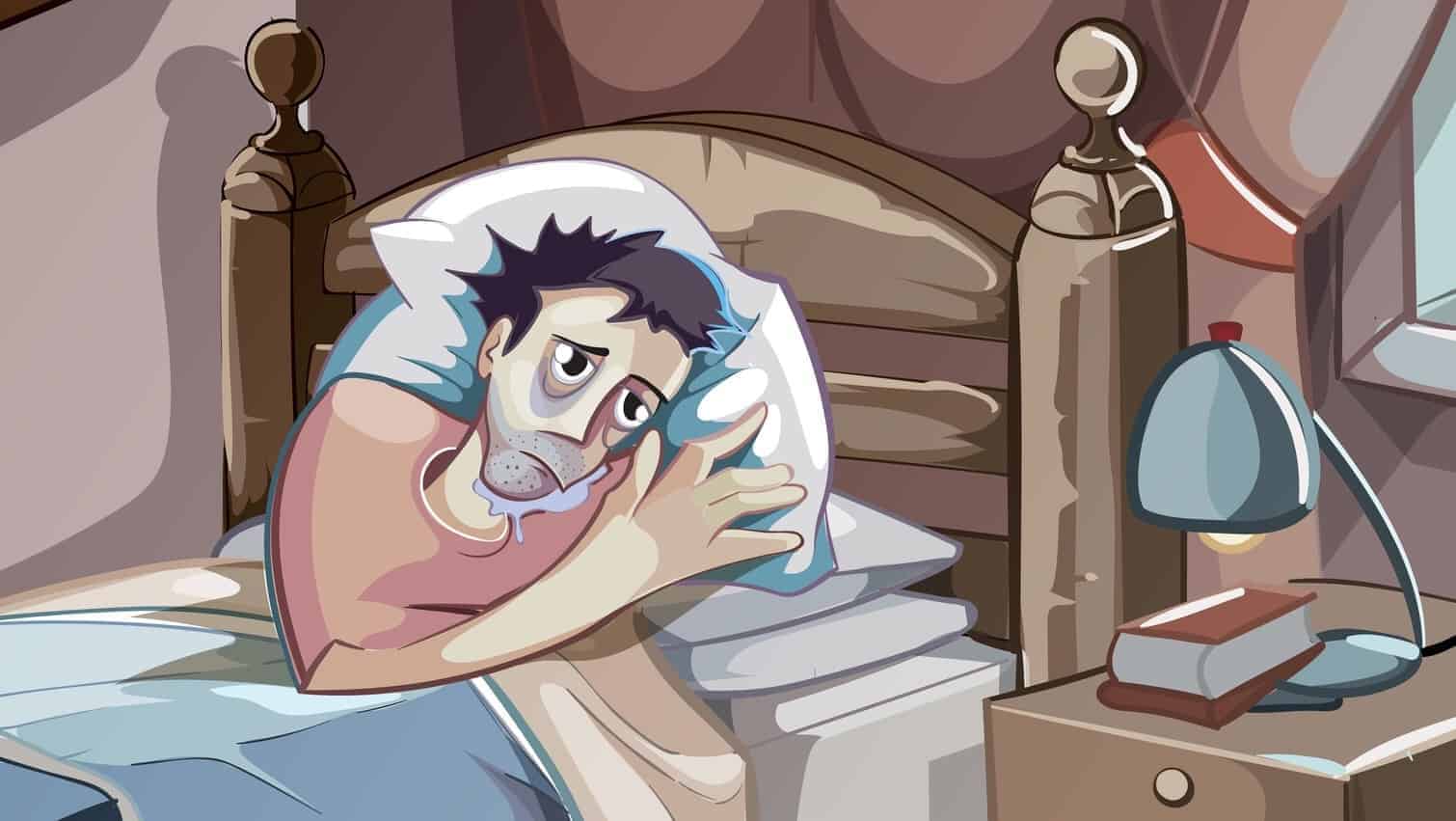Are you a late-night person instead of an early bird catching the worm type? It turns out that your nighttime habits, including staying up late, might negatively impact your health.
Experts indicate that people who do nighttime shift work are at a greater risk of developing medical issues. These issues include cardiovascular disease, diabetes, and other conditions. People who stay up late as a personal choice have the same risks, too.
People gravitate towards being a night or morning person, with little flexibility. They either like to stay up late or prefer going to bed early and waking up early.
If you’re a night owl, the uncomfortable truth is that it’s detrimental to your health. Science has proven that staying up late has unhealthy effects on your body and nullified any counterargument to the contrary.
Five Negative Effects of Staying Up Late
1. Late Nights Can Weaken the Immune System
Our immune systems are inextricably linked to a predisposed sleep and wake cycle – the circadian rhythm. A natural circadian rhythm is programmed for 12 hours of light and 12 hours of dark. When this internal body clock is toyed with, our immune system suffers.
In a study published in the journal Science, researchers observed the effects of tinkering with the circadian rhythm. Light-cycle disruptions increase the inflammatory immune cells in your body that protect against infections.
2. Too Many Late Nights Can Be Detrimental to Brain Health
Scientists at Aachen University in Germany administered brain scans of 59 people categorized into three groups: 16 early risers, 23-night owls, and 20 intermediates. Analyzing the scan results, scientists concluded that night owls possessed less “white matter integrity” in various brain areas.
White matter in the brain is a fatty tissue that facilitates communication between neurons, or how the brain sends signals to various body areas.
Disproportionate levels of white matter suppress the ability to transmit signals across the brain and body. To date, abnormal white matter levels link to depression and impaired cognitive function.
3. Late Nights May Lead to Poor Eating Habits
Besides having a weakened immune system and potentially unhealthy brain, night owls overindulge in unhealthy foods more often. In a 52-person study, researchers found a link between sleeping patterns and poor eating habits.
Dr. Phylliss Zee, the senior author of the study, states, “When sleep and eating are not aligned with the body’s internal clock, it can lead to changes in appetite and metabolism, which could lead to weight gain.”
Here are some specific findings of the study; night owls:
- Ate 248 more calories throughout the day.
- Consumed twice as much fast food
- Ate half as much fruits and vegetables
- Drank more full-calorie soda
- Had a higher body mass index (BMI), a measure of body weight
4. Staying Up Late Negatively Alters Melatonin Production
Melatonin is a hormone produced in the pineal gland that regulates sleep and wakefulness. Exposure to light stimulates a pathway from your eye’s retina to your brain’s hypothalamus. This pathway is where you will find the suprachiasmatic nucleus (SCN).
In addition to producing melatonin, the SCN, fires signals to parts of the brain that control body temperature and hormone levels. Typically, the aforementioned physiological response occurs at approximately 9:00 PM, when night owls, although not completely alert, are far from nodding off.
The brain and body adapt to environmental changes, including self-inflicted ones and habits. What this means for those who stay up late is underproduction of melatonin and disruptions to the hormone’s various functions.
5. A Late Night Increases the Risk of Diabetes and Metabolic Syndrome
According to a research study published in the Journal of Clinical Endocrinology & Metabolism, men and women both face health risks from staying up late. Men who stay up late are more likely to have diabetes, and females are twice as likely to have metabolic syndrome.
While the reasons for these effects are hazy, researchers suggest that eating calories after 8:00 PM and overexposure to artificial light – two common behaviors of night owls – can both influence metabolic functions.
Other Interesting Information
Here is some interesting research-based info about sleep/wake cycles:
- There is no observed correlation between intelligence, success, and one’s sleep/wake cycle.
- Whether you’re a morning person or a night owl is thought to be genetically determined.
- It is possible, though difficult, to change from an owl to a lark.
- If you can’t change your sleeping habits, eat healthily and avoid related health issues.
12 Habits to Help Break the Habit of Staying Up Too Late
Staying up late has perks for night owls, but the consequences outweigh them. To avoid the effects and form better habits, these tips can help you stop staying up late.
1. Exercise Regularly
Being active each day can make a difference when you lay down for bed at night. If you didn’t do anything physically demanding that day, it is hard to relax and get some rest. However, regular exercise can help you calm your body and fall asleep much quicker.
You don’t have to do any intense exercises, either. You can stick to options like yoga, Pilates, or a brisk walk if you’d prefer. Or, you can do crunches, push-ups, burpees, running, or cycling.
Whatever activity you choose, make sure it gets your blood pumping. Don’t exercise too close to bedtime, though, because it initially has an energizing effect.
2. Don’t Drink Caffeine After Midday
Caffeine can help you wake up and maintain concentration in the morning. However, once noon rolls around, you shouldn’t indulge anymore. It prevents drowsiness before bedtime, causing you to stay up later.
Instead, opt for caffeine-free teas that promote sleepiness. You’ll still enjoy a beverage, but it won’t interfere with your sleep habits and contribute to staying up late.
3. Read a Book at Night
Studies show that reading helps reduce stress levels, helping you drift off to sleep easier each night. It takes your mind off of your daily struggles, allowing you to relax and think about something happier.
4. Clean Your Room
Keeping your bedroom tidy and organized can help you sleep better. Studies show that a messy room increases a person’s risk of developing a sleep problem. It could cause you to struggle with falling asleep or experience sleep disturbances.
5. Write in a Journal
Writing your thoughts down can work wonders for helping you sleep at night. Your brain tries to keep track of everything, forcing it to work overtime each day. When you have overwhelming thoughts, write in a journal to help ease your mind.
Writing things down can ease nagging thoughts that keep you awake. You can make lists in your journal about what you want to accomplish the next day, helping silence your inner to-do list. Whatever thoughts keep you awake, getting them down on paper can make a beneficial difference.
6. Plan Your Evening
You plan the other parts of your day, so you should do the same for your evenings. Think about the things you want or need to accomplish and plan to accomplish them. Whether you have chores or want to spend time relaxing, make a schedule to get it done before your bedtime routine begins.
7. Keep Your Room Cool
It’s easier to fall and stay asleep in a colder room, although a warm and cozy room would do the trick. According to the Sleep Foundation, you will sleep better in a room around 65-degree Fahrenheit. Your internal temperature drops at night, so a cool environment provides the best situation for sleep quality.
8. Make Time to Do Nothing
Sometimes you need the time to sit down and not do anything. You can use this time to meditate or reflect on the day. Give yourself time to process your impulses, emotions, and thoughts, as it can help you digest your life events.
When you first try to take time to do nothing, you’ll likely find it a challenge. Be present and resist the urge to get up and do something. It’ll get easier the more often you do it, and you’ll quickly recognize the difference.
9. Don’t Do Activities in Your Bedroom
If you frequently do activities in your bedroom, it’ll make it harder to sleep at night. Doing work, browsing the internet, or scrolling social media in your bedroom make you subconsciously associate those things with your room. Then, you’ll struggle to fall asleep as you think of everything you could be doing instead.
Limit the things you do in your bedroom, and you’ll only associate your room with sleep or intimacy. Don’t do crafts or fold laundry in your room, either; you might want to get up and do it late at night.
10. Understand the Reasons You Stay Up Late
If you often stay up late, you must think of why you do it. Knowing what you’re up against can help you make beneficial changes and fall asleep earlier at night. When you know the things that keep you awake, you can fight the urges better.
11. Don’t Eat a Meal Right Before Bed
When you’re up late, it’s more tempting to overeat. You might eat enough snacks that they count as a meal, or you might go ahead and have an entire meal. Eating too close to bedtime can cause indigestion and discomfort, making it hard to fall asleep.
12. Establish a Bedtime Routine
Humans are creatures of habit, and a bedtime routine is a healthy part of that. When you have an established routine, your mind and body will know when it’s time to fall asleep. It helps you wind down and prepare for rest rather than not being ready for bed until late.
Bedtime routines also decrease feelings of stress and anxiety, eliminating and preventing worrying thoughts. They also allow you to find fulfillment and get things done at a reasonable hour.
A good bedtime routine begins about an hour before bed, but some people choose 30-minutes before. You’ll do it at the same time each day and for the same length before lying in bed. Some ideas for your routine include:
- Light stretching or yoga
- Reading a book
- Practicing breathing techniques
- Meditating
- Playing calming music
- Writing in your journal
Final Thoughts on Decreasing Late Nights
Staying up late has many negative effects on your body, so it’s best to find another solution. If you can’t avoid staying up late, ensure you aren’t participating in late-night activities that hinder your health.
You can make some beneficial changes to help you go to bed earlier, but not all will work for you. Try a few and see what works, then add another habit to help you stop staying up late. Eventually, you’ll find what works for you and become healthier overall.
















 Community
Community

